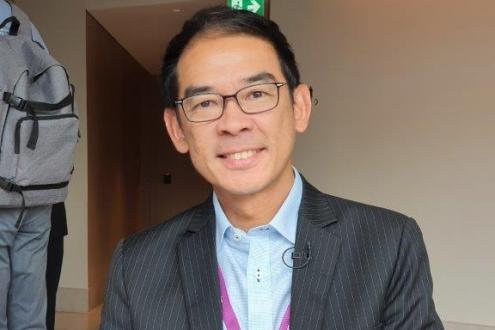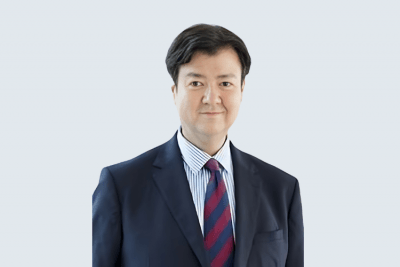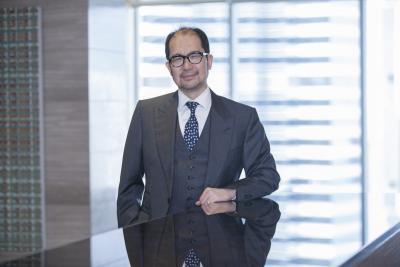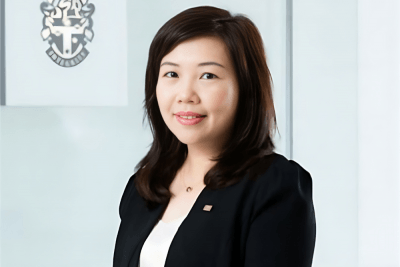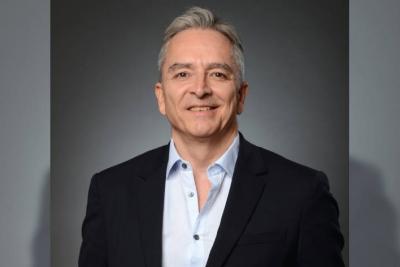Wealth Solutions & Wealth Planning
Shook Lin & Bok Partner Tan Woon Hum on Singapore’s Compelling Case as a Jurisdiction for Family Wealth
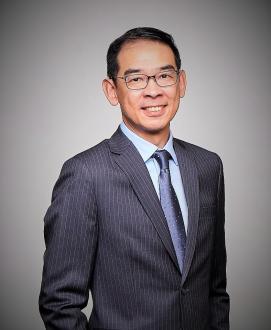
Tan Woon Hum of Shook Lin & Bok
Mar 4, 2021
Tan Woon Hum is widely regarded as one of the leading lawyers specialising in investment funds, REITs and trusts. He is a partner at Shook Lin & Bok, a leading Singapore law firm, and heads a team of specialist lawyers in the Trust, Asset & Wealth Management practice, covering Investment funds, fund formation and licensing and regulatory matters. He has extensive experience in advising private clients and trustees on the establishment of private trusts, single-family offices, single-family funds, Section 13X structures and drafts and reviews trust documents, fund documents, global investor programme documents, family charters, wealth planning documents. He started legal practice with Shook Lin & Bok in 1996, re-joined in 2003 as a partner, leveraging the firm’s reputation as one of the major law firms of choice for inbound and outbound investments within Asia, with a particularly strong and successful focus on China and India. Hubbis had the opportunity to speak with him recently by video call, during which we learned much about the latest thinking regarding wealth planning vehicles, structuring and family offices in Singapore, and the ongoing rise in demand for the jurisdiction amongst very wealthy local Asian families and many from further afield.
Woon Hum opens the conversation with the observation that there had been a notable increase in not just inquiries but actual advisory and transactional work for family offices. The demand is coming firstly from wealthy families setting up family offices in Singapore, either to manage part of family wealth out of Singapore and potentially to hire some of their own family members to helm the family office here. Additionally, Singapore families are establishing their own family offices in one form or another, whether a trust, holding company, or a proper single-family office.
Many drivers
He comments that there is a host of well-documented reasons for them to do this, from the wish to create a more systematic and structured way of managing the family wealth, to legacy and succession planning, tax efficiency, as well as for nurturing and training the future generations. Sometimes, the concept is to initially commence as a single-family office but to subsequently develop into a regulated multi-family office, when systems and expertise have been built. “In all these areas,” he reports, “demand has been increasing in recent years, and the traction is very healthy indeed.”
Woon Hum elaborates on some of these motivations, explaining for example that for legacy and succession planning, important stakes in key businesses can be transferred into a chosen family fund structure, which is then managed by the Single Family Office (“SFO”) and thereby helping to facilitate an orderly transition of the wealth and control to the next generations.
Taking control
Another motivation is sometimes to be able to hire experienced professionals in order to bypass a constant flow of fees and commissions to private banks and EAMs or multi-family offices.
“Outsourcing investments to private banks and other professional advisory firms results in less control as well as considerable cost,” he remarks. “So, if the family wealth is at a scale where it makes economic sense to take it in-house, then there are financial as well as control and privacy advantages.”
Oftentimes, he reports, these very wealthy families are bringing investment wealth of at least USD100 million to the table, and often multiples of that, up to the billions. “Accordingly,” Woon Hum says, “it is natural these families want more visibility, more control, more direct influence over the investment decisions. And with this sort of scale, they can hire experienced professionals who are also dedicated exclusively to their family's interests. They then set their own agendas, objectives, target returns and KPIs. The consolidation also helps with tax planning and mitigation and for ease of reporting from one central operation.”
A range of vehicles available
Woon Hum adds that there is also growing demand to house some or all of the family investments in other investment structures such as investment funds, PIHC [the Private Investment Holding Companies], or offshore trusts. “There is a growing demand for such structures with Singapore as the jurisdiction of choice,” he reports. “There are plenty of good options here for funds holding family wealth.”
The originators might, for example, set up a Singapore company, a Singapore fund, or a Variable Capital Company (VCC), and then they can either self-manage using the SFO, or they can farm the management of the fund out to the holder of a Capital Markets Services (CMS) for fund management or a Registered Fund Management Company.
Singapore’s star
Woon Hum explains that Singapore’s star as a jurisdiction of choice has been rising for the past five-plus years. He reports that many large institutional clients, large family offices, and large sovereign wealth funds are shying away from the ‘traditional’ offshore jurisdictions and erstwhile tax ‘havens’, especially those that are or might be blacklisted.
Moreover, concerns over data leakages is far higher since the Panama Papers saga and other high-profile leaks. “So clearly in this region, Hong Kong and Singapore are both at an advantage now as the trend towards onshoring takes place and as initiatives such as CRS, AEOI and BEPS play out,” he reports. “In short, amongst others, those are some of the key ‘push’ factors.”
Proactive regulators
And at the same time, Singapore has come up with more ‘pull’ factors, especially in the ways in which the government, the regulator and the wealth industry have been developing the ecosystem in finance, banking, asset management, wealth management, and also trust services and other professional services.
”Armed now with such a full arsenal of vehicles, services and expertise, and supported by smart regulation and incentives, the environment is ideal for families considering SFOs, Multi Family Offices (“MFOs”) and other fund structures,” Woon Hum states. “In addition, we enjoy socio-political stability here and a welcoming culture, and it is of little surprise that Singapore is doing so well.”
VCCs on the rise
He adds that on the subject of incentives and structures, the arrival of the VCC in January 2020 is another ideal piece of the overall fund jigsaw puzzle that allows Singapore to shine on the global stage.
“The VCC is very similar to the Cayman SPC, or Segregated Portfolio Company,” he reports, “allowing families great versatility because of the umbrella style fund structure or open-ended capabilities of such a company fund. And as you can have variable capital, with different classes, different series, and different kinds of strategies, and as the sub funds are ring-fenced from each other, the VCC is really proving to be a very useful tool for SFOs and indeed for the MFOs.”
Woon Hum observes that as clients are increasingly ‘onshoring’ their structures and assets in jurisdictions, then the question becomes location, with centres such as Singapore, Hong Kong, Zurich, Geneva, London, New York, and perhaps Jersey or Delaware as the prime candidates.
Spoilt for choice
“If they opt for Singapore, then they would also be attracted by the availability of several kinds of fund vehicles, such as the PIHC, the unit trust, the limited partnership, the corporate fund, or the VCC,” he elucidates, “and each of these has its pros and cons, each its quirks and idiosyncrasies, and clearly certain structures are better for certain strategies.”
He notes that, for example, the PIHC in Singapore would have to pay 17% corporate income tax, and if it has no business but to hold investments the gains will be taxed at 17% as well, net of expenses. Whereas he reports that for the unit trust, limited partnership, corporate fund or the VCC if structured correctly, there are tax incentives which potentially allow for tax neutrality in a fully compliant manner.
Tax incentives
He elaborates further, explaining that of course, certain conditions for the tax incentives must be met, including, for example, the fund administration conducted in Singapore, meeting the minimum fund size, and a minimum number of investment professionals, as well as complying with the substance requirements.
He also points to the more than 80 Double Tax Agreements Singapore has in place, noting that should families use an approved Singapore vehicle through which to invest part of the family wealth in other jurisdictions, then the DTAs will work to offset or mitigate some of these taxes.
And a unit trust has advantages for regular income, for example, investments in an income-generating equity or perhaps property portfolio, to allow for rental income net of expenses to be distributed every month, because such unit trusts, including REITs, are not subject to restrictions on the distribution of dividends or return of capital as would a company under the Companies Act.
Looking ahead
As to future developments, Woon Hum says that there is a possibility that the next national budget towards mid-2021 might see additional incentives for the fund, wealth management industry, but that as yet nothing is visible. He does however expect that the MAS will be looking to refine the VCC regime, to improve it further to allow greater flexibility, for example for the SFOs to be permitted to manage the VCC fund.
Currently, he explains that in order to manage the VCC, the entity must hold the CMS license for fund management in Singapore, or be a RFMC, or a Singapore licensed financial institution. “Going forward,” he reports, “we think there's a strong likelihood that the MAS will allow the VCC fund to be managed by the SFOs, even without the CMS license or having RFMC status, albeit with certain safeguards and AML guidelines to be met. The private sector is working closely with the regulator on further advances, such as these.”
Key Priorities
Woon Hum says his first priority is ‘people, people and people’. “We first need to identify the best people that we have, our lawyers and our staff, and motivate them, incentivise them, give them a vision, keep them healthy, motivated and sane, especially during the continuing pandemic and associated challenges,” he reports. “Just really focus on keeping them focused and continuing their good work in serving our clients as best as we can.”
And the second priority is also ‘people’. “Clients are the people who need to be looked after, we need to anticipate their issues, especially during these very challenging and uncertain times, and we must help them steer through the storms,” he says. “And we must try to find new good clients that we can service for the medium to long term.”
The third priority is, again, ‘people’. “We work with partners and friends and we will continue to identify and maintain very good relationships with fellow advisors, foreign law firms, business associates such as tax consultants, other service providers such as the trustees and fiduciaries, the banks, the private banks, and industry intermediaries,” he explains. “I call this ‘pack hunting’, whereby we can collaborate as a team to serve our clients in the best way possible, putting the best people in front of the clients.”
In short, he concludes, people, people and people are the key priorities for the next few years.
Good times ahead
Woon Hum closes the discussion by reiterating that Singapore is clearly at the cutting edge of the market when it comes to offering the right cocktail of vehicles, structures, incentives, immigration programmes, financial services infrastructure and ecosystem, socio-political stability and regulatory innovation. “We anticipate some very positive and interesting years ahead for this vibrant sector here,” he concludes.
Getting Personal
Woon Hum is a Singaporean who was educated through to his LLB (Honours) from the National University of Singapore, after which he completed his MBA (FinancE) at the University of Leicester in England. He has been practising law as his career since 1996, and has been with Shook Lin & Bok for almost 20 years, and has been a partner since 2003. “I actually started out as a banking and finance lawyer in 1996, and then specialised in funds, asset and wealth management from 2004 onwards,” he reports.
He is married with three children aged 17, 19 and 22, all of them still in Singapore. Family time is spent enjoying music and travel when pandemics are not restricting movement. “Greece and the USA were the more recent trips we really enjoyed,” he recalls.
A positive to emerge from the pandemic has been more home time with the family. “Normally, I used to spend such incredibly long hours at the office that I did not see the family enough,” he reports, “but like everyone else we now work remotely, so seeing much more of them all has been a major bonus.”

Partner, Head of Trust, Asset & Wealth Management Practice at Shook Lin & Bok

More from Woon Hum Tan, Shook Lin & Bok
Wealth Solutions & Wealth Planning
Leading Trust and Estate Lawyer Tan Woon Hum on Singapore’s Rising Star
Latest Articles


